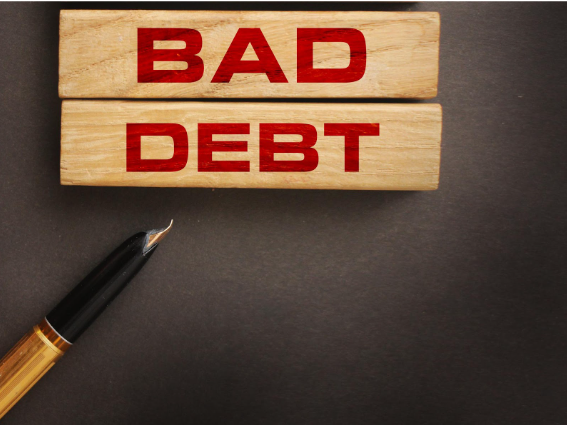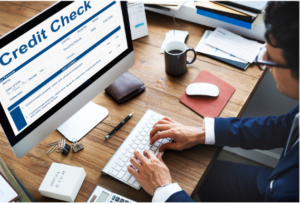
How to Avoid Bad Debt
Debt is a word that often comes with negative emotions, but not all debt is harmful. However, bad debt can create significant stress and financial difficulty. This blog aims to help you understand what bad debt is and provide you with practical ways to avoid it. By being aware and taking preventive measures, you can navigate your finances more confidently and live a more secure life.
Understanding the Concept of ‘Good Debt’ vs. ‘Bad Debt
You might have heard the terms ‘good debt’ and ‘bad debt’ but wondered what exactly they mean. Good debt is usually an investment that will grow in value or generate income over time. Think of a student loan for education that will increase your earning potential or a mortgage for a home that will appreciate.
On the other hand, bad debt generally offers no potential to increase your wealth and usually involves purchases that lose value over time. For instance, credit card debt from buying the latest gadgets or clothes can be considered bad debt because these items don’t provide a financial return.
Aim for debts that will benefit you in the long run and try to avoid those that won’t.
Common Sources of Bad Debt
Bad debt can sneak up on you if you’re not careful. Some of the usual suspects are:
- Credit Cards: Using credit cards for everyday expenses can be tempting, but it’s easy to rack up a high balance with high interest. Before you know it, you’re in a cycle of debt that’s hard to break.
- Payday Loans: These are short-term loans with extremely high-interest rates. They might seem like a quick fix but can turn into a long-term problem.
- Luxury Items: Sometimes, splurging on luxury items like designer clothes or high-end electronics may feel good at the moment, but it can lead to debt that’s hard to pay off.
The Role of Impulse Buying

Impulse buying is when you purchase on a whim, without giving it much thought. While grabbing that extra snack at the checkout or clicking “buy now” on an online sale might seem harmless, these small decisions can add up. Before you know it, you’ve accumulated debt from purchases you didn’t really need.
The problem with impulse buying is that it often leads to bad debt. You’re not investing in something valuable; you’re just satisfying a momentary desire. This can make it harder to pay off your debts in the long run and puts you at risk of falling into a cycle of constant repayment without making much progress
Being mindful of your spending habits and avoiding impulse purchases can go a long way in helping you sidestep bad debt.
Smart Budgeting as a Preventive Measure
Having a budget is like drawing a map for your finances. It tells you where your money should go, helping you prioritize essential expenses and avoid unnecessary ones. Without a budget, it’s easy to lose track and end up in bad debt.
To start, jot down your income and all your fixed expenses like rent, utilities, and groceries. Then allocate what’s left for other needs and a bit for leisure if possible. The key is to stick to this budget as closely as you can. By doing so, you’re less likely to spend on things that lead to bad debt, like excessive dining out or impulse buys.
Importance of Emergency Funds
Unexpected events can happen at any time—your car might break down, or you could face a sudden medical expense. Without a financial cushion, you might resort to using credit, which could lead to bad debt.
An emergency fund is essentially money saved for these unexpected situations. Financial experts often recommend saving at least three to six months’ worth of living expenses. Having this money set aside means you won’t have to rely on high-interest credit options in a pinch, helping you steer clear of bad debt.
Start small if you need to; even a little saved is better than none. Gradually, you can work your way up to a more robust emergency fund.
Look at Interest Rates
Interest rates may not seem like a big deal when you’re making a purchase, but they can quickly turn manageable debt into a financial burden. High interest rates, especially on credit cards or payday loans, can make it extremely difficult to pay off your debt. You will end up paying much more than the original amount you borrowed.
Understanding how interest rates work is crucial for avoiding bad debt. Always read the fine print and know what you’re getting into before taking on any debt. Aim for options with lower interest rates, and be cautious of any “too good to be true” offers that hide high rates behind initial low payments.
The Importance of Credit Checks

Regularly checking your credit score and report can help you keep tabs on your financial health. If you notice your score dipping, it could be a sign that you’re accumulating too much bad debt. Taking corrective actions like paying off outstanding balances can not only improve your credit score but also steer you away from the path of bad debt.
So make it a habit to check your credit score at least once a year. Equifax and TransUnion offer this for free (once a year), and it can provide valuable insights into your financial well-being.
Speak With a Debt Expert
If you find that despite your best efforts you’re sinking into bad debt, it might be time to seek professional help. Financial advisors can provide targeted strategies tailored to your situation.
Debt is part of life’s challenges, so you’re going to overcome the challenge. At EmpireOne Credit, our debt experts are ready to help you in your journey towards debt-freedom. We can help you in reducing your debt by up to 80%, and interest will stop immediately. Call us at (416) 900-2324 to schedule a free consultation with us. Being debt-free feels good!





